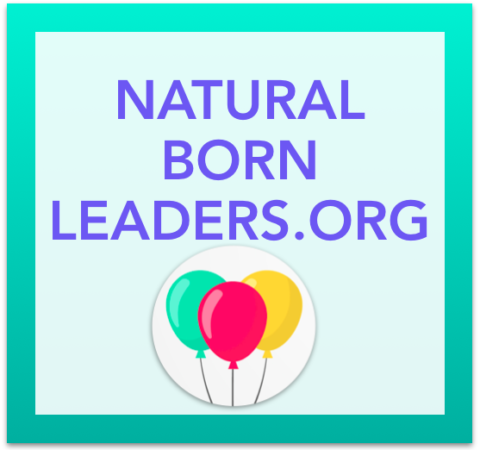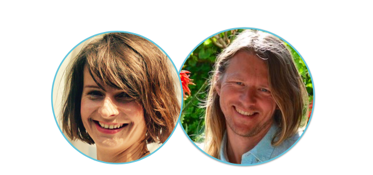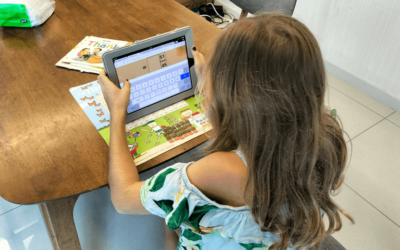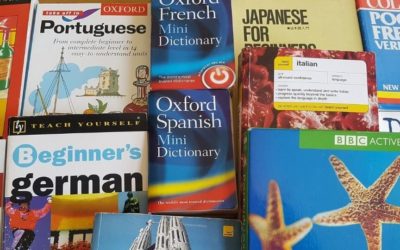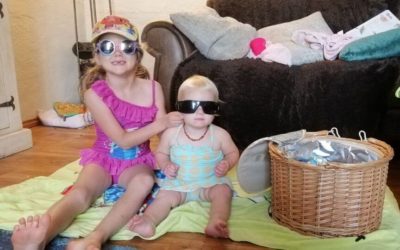Creating an unschooling curriculum
Welcome to the first of our unschooling blogs! As a slow traveling, digital nomad family we also identify as unschoolers. Since there’s a fair bit of uncertainty around world travel at the moment we’re going to cover off a few topics that are perhaps a little more pertinent at this time. In this article, we’ll share some of our insights about unschooling. And although it’s somewhat of an oxymoron, we’ll talk a bit about how you can create your own unschooling curriculum.
In light of recent worldly happenings (you know the ones), many parents suddenly found themselves at home with the kids. Their child’s school might have had strict expectations around the material to be covered at home. Some schools were more relaxed but the parents may have had their own self-imposed expectations. Often these were around what they thought they “should” be doing to educate their child during this time.
Just how many hats can a parent wear?
Feeling completely ill-equipped to meet these expectations, many parents became very overwhelmed. Their already full-schedules completely overflowed with the addition of working from home. At the same time, they were trying to fill the gap of educating their children.
Some let go of trying to home school at all. Maybe there was simply no time on top of everything else. Or their kids didn’t respond to being “taught” by their parents. And then one of two things probably happened:
- The parents let go (a little or a lot) because they couldn’t keep up with everything. They simply hoped that their kid could get back on track ok when school started again
- They realized that their kid was learning a lot from life itself. Maybe they were learning different things, or learning similar things in different ways. Either way, they were definitely still learning
Unschooling families like us have consciously stepped outside of the traditional school system. Maybe you have too. Or maybe you’re arriving at this post because you’re looking for a preschool homeschool curriculum, kindergarten homeschool curriculum, or a homeschool curriculum for older children?
Perhaps, you’re one of the parents who suddenly found yourself with your kids at home and you’re wondering what to do with them. Maybe you even consciously decided to home school your kids. If you’ve now become curious about unschooling then you’re in the right place.
When you unschool, you can remove one of those many hats (and no, you don’t need an unschooling curriculum as such)
Here’s a little insight into unschooling: you can take off one of those hats. Ok, so if your kid was at school but now they’re not, you might need to go through something called “deschooling” first. This is essentially the transition from schooling to non schooling.
But the great news is that your child is absolutely capable of learning and thriving outside of a traditional school system.
In this post, we’re going to explain a bit about unschooling and why an unschooling curriculum is a bit of an oxymoron. Then we’ll share the reasons that we unschool our kids and a bit about how it looks for us. Finally, we’ll share some unschooling resources, including a great program for holistic home learning. It’s not exactly an unschooling curriculum but it will give you the confidence you need to facilitate your child’s learning. [If you can’t wait, then take a sneak peak here].
What is the unschooling method?
Also known as “life schooling” or “non schooling”, the unschooling philosophy is essentially a child-led method of learning. Life itself is full of opportunities to learn and unschoolers fully embrace this knowledge.
The late John Holt was an early advocate for homeschooling, and then more specifically, the unschooling method. After working as a teacher 1950’s he went on to write the book “How children fail”, which highlighted his observations of the problems (such as grading and testing) in the American school system. He subsequently went on to write “How children learn” to demonstrate the ways that children learn and how parents can support their child’s natural ability to learn. [Click on the Amazon ads below to view the latest prices and purchase these books].
There is no formal unschooling curriculum or planning involved with unschooling. This allows children to choose what they learn about and when they want to learn it. Learning happens through play, exploration, everyday activities and chores, experiences, and well…life.
Essentially, learning and life are one. They’re interwoven and inseparable. Unschooling parents don’t tell their children what to learn. Instead, they help facilitate their child’s learning by offering them the freedom to explore their passions and interests. They work alongside their child to provide environments and resources that help to nourish the child’s natural curiosity and eagerness to learn.
Unschooling vs home schooling
Homeschooling and unschooling are both forms of home education. And they’re not necessarily separate entities. Think of home education as a continuum. One end is very formal and the other end is completely informal. Home educators will likely identify with one area on the continuum. And maybe some aspects of their homeschooling life are more formal, and others less so.
Homeschoolers at the formal end of the continuum are very likely to be following a curriculum, and may even be using the exact same one that the local schools do. So essentially they’re doing school at home.
Unschooling is at the informal end of the homeschooling continuum. It’s a branch of homeschooling, which could also be called “no schooling homeschooling”.
What is radical unschooling?
Right at the most informal end of this is something which is known as “radical unschooling”. Radical unschoolers extend their child-led philosophy into all areas of life including bedtimes, chores, and family outings. An exact definition is definitely a subject for debate, even amongst unschoolers. Essentially, however, radical unschooling simply erases any distinction between educational and non-educational activities.
There can often be a stigma attached to the term “radical unschooling”. Although the media might portray it as such, it doesn’t mean the abdication of personal responsibility or boundaries for the child. It certainly doesn’t mean “un-parenting”. Radical unschooling parents see the value in offering their child choices and the opportunity to make decisions in all areas of life. Done well, their role as a guide will be very intentional and child-centered.
[Although it’s not exactly an unschooling curriculum, this home education accelerator program can be used for homeschoolers and radical unschoolers alike].
Disadvantages of unschooling
Critics of homeschooling and unschooling often pull out the socialization “issue”. This is something that has been fed into the mentality of society. Even from well-meaning non-homeschooling parents, the “what about socialization” question seems to roll off the tongue before anything else springs to their mind.
Critics argue that homeschooled and unschooled children are socially disadvantaged because they don’t have the same opportunities to spend time with their peers. They seem to believe that homeschooled children will struggle with the social skills required for the “real world”.
Sure, if we were going to keep our kids inside forever (which is not so much of a joke in light of what has been going on in the world lately), and avoid interactions with the outside world, there might be some merit in this statement.
However, school is not the only place to socialize. And we personally don’t think it’s the best place for socialization. Children at school are mostly interacting with other children their own age. In our experience, many homeschooled and especially unschooled children are able to develop incredible social skills by interacting with a wide range of ages and people from many walks of life. [This is also possible for children who attend school; we’re just saying that this generally isn’t done well inside the school system].
When unschooling doesn’t work
Sure, there will be instances when unschooling fails or doesn’t work. And it’s certainly not going to be the first choice for every family. We’re not saying that it’s the best choice for everyone, but simply that it’s a valid and exciting choice for many families to explore.
I’m not going to lie and say that it’s easy being with my kids all the time. With a 6 year old and and 1 year old, the days can be very full on. And this is without any scheduling. Sometimes it’s tantrums (not only from the kids!) and chaos and I wonder what on earth we did all day or why we couldn’t get out the door till 3pm.
We’re raising confident and determined free-thinkers, and that certainly also comes with it’s challenges for mum and dad!
But then I focus on the big picture. On the days when it feels hard and like school would be a much easier option, I think of the long term. As parents, we are learning every day about how to make this all work. We’re growing alongside our children and are humble enough to admit when we ourselves have made poor choices. Working through the challenges together allows us to gain a deep understanding of how to meet the individual needs of each family member, as thorny as the process of doing so can be.
Why did we choose unschooling?
Both Colin and I went through the traditional school system although our routes to further education and University degrees were somewhat different! [In case you’re wondering, homeschooled kids and unschooled kids can still go on to complete tertiary education if they choose to].
I went straight out of school at age 17 and completed a double degree. In contrast, Colin left school at 16 with no significant formal qualifications and didn’t think anything more about further education until his late 20s. Even then, it was only some evening classes at a local tech college.
But after several twists and turns of life, in his mid-30s, he went from no formal qualifications to gaining an MBA at one of the UK’s top business schools. (The University of Durham Business School).
I personally loved a lot of aspects of my schooling life, and it’s not like I necessarily wanted to rebel against it. Essentially, (and I speak on behalf of both of us now), the number one word that describes our parenting philosophy, and life in general, is “intentional”. Instead of following the masses we stop and ask questions about every decision we make, and whether it aligns with the ways we want to live our lives, both now and in the future.
Ultimately, we decided that we wanted to be able to spend plenty of time with our kids and that homeschooling or unschooling would make this possible. We didn’t want our kids to spend more time with a school teacher each day than they did with us. So we set about creating a lifestyle that would allow this to happen.
The gradual evolution from a homeschooling to unschooling mindset
With all this in mind, we knew we would intend to homeschool from the beginning. We gradually evolved towards more of an unschooling approach. This was in part because it was simply too full on for me to consider sticking to a rigid routine.
Along our journey we also got to know several unschooling families and meet unschooled kids who were now grown up. We realized how likeminded we were and it also gave us the confidence to know that unschooling was a very valid and exciting option, which would be full of opportunities for the whole family.
Unschooling was also simply an extension of our parenting philosophy. The theory of attachment parenting really resonated with us. Alongside this, we followed the rhythms of our children from birth, rather than trying to mold them into our own schedules. This included choices such as babywearing, breastfeeding on demand, and bad-led weaning. Unschooling allows us to continue this pattern of following the child’s rhythms.
Why unschooling works
As unschooling parents, we know that learning happens all the time. It’s incredible how open children’s minds are and we are grateful that we get to witness the amazing learning that happens all the time.
Self-directed education allows for natural child-led learning. We love that our children can learn at their own pace and follow their passions and interests completely. It would be a very rare occasion for us to hear our daughter say that she is “bored”. Children are naturally curious and excited to discover everything about the world around them. When we nurture that curiosity by involving them with everyday activities and asking for their input, the magic really happens.
We also believe that unschooling allows for effective use of time. There is no lining up or organizing large groups of children. When a child is deeply engrossed in an activity they can continue doing it as long as they like, rather than being moved onto another task that is out of sync with where their thoughts are at. This allows them to take a deep dive into subjects at a level that may not be possible inside a traditional school system.
Our children get to wake up without alarms. There is no “over-scheduling” and none of the stress that seems to be associated with keeping up with the expectations of a school.
How unschooling looks for us
I know you want to find out more about this unschooling “curriculum” I’ve mentioned, and I’m aware this post could go on forever. So I’ll keep this section short and expand on it in a related future post.
Essentially, for the first 6 years of our older daughter’s life, the focus has been on play-based learning. The Wardorf education philosophy (Rudolf Steiner) appealed to us, so this was where the inspiration originally came from.
Play is the highest form of research.
Albert Einstein
A few of the ways our older daughter has learned during the first 6 years of her life:
- Mathematics from using everyday household objects such as pens and pencils. She has also recently learned a lot from baking and cooking (think weighing, measuring, doubling recipes, etc).
- Reading from first of all memorizing books at age two, to reading menus as we slow traveled for three years around South East Asia. [We also identify as world schoolers, which is a topic for another post. Find out more on our “about page“].
- Swimming at age three simply as a result of being able to play in our condo pool every day in Malaysia
- Creativity through drawing, painting and various arts and crafts activities
- Risk-taking and confidence from climbing trees
…and much more. I just thought I’d briefly mention the reading and math ones because I know they’re the most common concerns from families who are considering unschooling.
Unschooling (where to start): Resources to help you develop your own unschooling “curriculum”
Let’s finish up on some helpful resources so that you can develop your own unschooling curriculum.
There are plenty of “unschooled” books, and also a great documentary that we can recommend.
One of the first books we read, maybe even just before Ayla was born is called “You are your child’s first teacher”. Based on the philosophy of Rudolph Steiner, it will help give you the confidence to support and nurture your child’s developmental needs from birth to age six. “The Unschooling handbook: how to use the world as your child’s classroom” and “Unschooled: raising curious, well-educated children outside the conventional classroom” are also highly rated.
If you’re wondering about unschooling (where are they now?) there is a great documentary we recommend. The self-taught movie is all about self-directed learners who were primarily unschooled children. They’re now all amazing young adults (including Miro Siegal, who we met personally at the world schooling summit in Chiang Mai in 2018). The documentary shares their stories and is available to stream or purchase on DVD.
A holistic unschooling curriculum for self-directed learning
Unschooling can be done well without spending a huge amount of time planning and organizing what your kids are going to. If you want to fully support your kids to learn to their full potential and develop future-oriented life skills, then we highly recommend the Home Educator Accelerator program created by our friends Magdalena and Witold. It’s not exactly an unschooling curriculum, but it may be just what you need to support your child’s learning in a holistic way.
We first met Magdalena, Witold, and their son Julius in Bali in 2017, and also spent time with them in Malaysia and Singapore in 2019. Between them, they have an impressive list of qualifications as teacher trainers, curriculum developers, assessors, and evaluators.
They’ve pulled out all their gold nuggets of wisdom from their backgrounds in education. And they’ve combined this with their experience of unschooling and worldschooling their son Julius from birth. The result is this fantastic program that will give you the confidence you need to offer your children experiential whole-person self-directed learning.
Click here to find out all the details about the program. At present (May 2020) they are offering a COVID-19 crisis support special offer. There is also a free module that you can test out first if you wish to.
Have a question or something you’d like to share with us about unschooling? Awesome! Contact us here and lets start a discussion…
![Logo-P&P-Red&Yellow [248x83] Logo-Parenting and Passports [Red&Yellow] [248x83]](https://parentingandpassports.com/wp-content/uploads/2023/10/Logo-PP-RedYellow-248x83-PNG.png)
